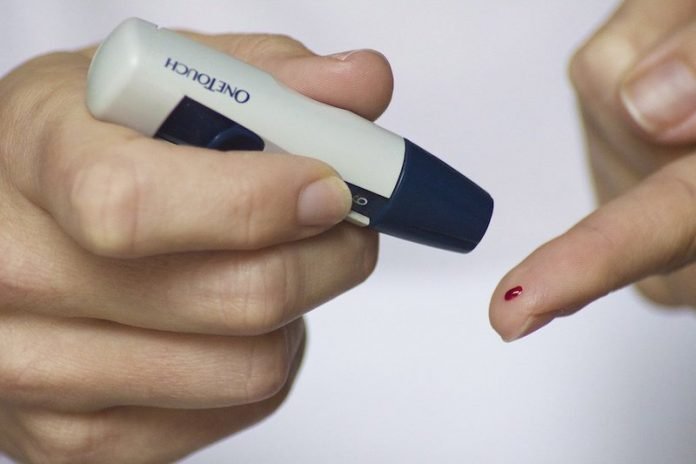
Throughout the COVID-19 pandemic, clinicians have noted that certain patients are at especially high risk of developing severe illness or dying from coronavirus infection.
Type 2 diabetes—a condition affecting more than 10 percent of the U.S. population– is one of the main risk factors for severe COVID-19 illness.
In a recent study published in Proceedings of the National Academy of Sciences, researchers found why this might be and offer hope for potential therapy.
The culprit appears to be an enzyme called SETDB2. This same enzyme has been implicated in the non-healing, inflammatory wounds found in people with diabetes.
The study is from the University of Michigan. One author is Katherine Gallagher, M.D.
The team used a mouse model of coronavirus infection, and they found that SETDB2 was decreased in immune cells involved in the inflammatory response, called macrophages, of infected mice with diabetes.
They later saw the same thing in monocyte-macrophages in the blood from people with diabetes and severe COVID-19.
In the mouse and human models, as SETDB2 went down, the inflammation went up. In addition, they revealed that a pathway known as JAK1/STAT3 regulates SETDB2 in macrophages during coronavirus infection.
Taken together, the results point to a potential therapeutic pathway.
Previous findings from the lab demonstrated that interferon, a cytokine important for viral immunity, increased SETDB2 in response to wound healing.
In the new study, they found blood serum from patients in the ICU with diabetes and severe COVID-19 had reduced levels of interferon-beta compared to patients without diabetes.
The team also found that if they administered interferon beta to coronavirus-infected diabetic mice, they were able to increase SETDB2 and decrease inflammatory cytokines.
The researchers hope the findings of this study will inform ongoing clinical trials of interferon or other downstream components of the pathway, including epigenetic targets, for COVID-19.
Their work also highlights the need to understand the timing and cell-specificity of therapy and to tailor its application to patients’ underlying conditions, especially patients with diabetes.
If you care about diabetes, please read studies about why some people have dangerous diabetes complications and findings of weekly insulin can help manage type 2 diabetes effectively.
For more information about diabetes and your health, please see recent studies about the key to new therapies for Alzheimer’s disease, diabetes and results showing that these two daily habits can reduce diabetes risk.
Copyright © 2021 Knowridge Science Report. All rights reserved.



